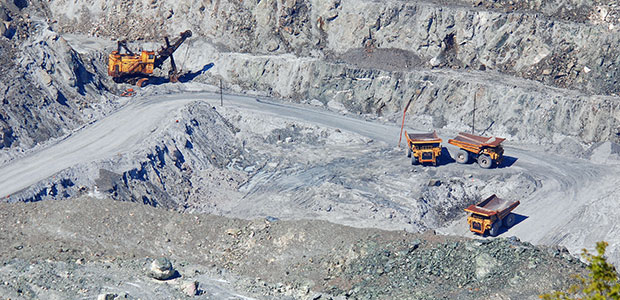
Asbestos Initiative Gaining Traction in Canada
Quebec health officials are concerned concerned about plans for asbestos residue repurposing efforts, saying it should be banned. But one town meeting on the topic with 150 people shows that not everyone agrees.
It’s no secret that there are serious health hazards associated with asbestos exposure. There are particular concerns with the act of repurposing asbestos mine residue, and health and environmental advocates have long vocalized these concerns. However, people in Asbestos, Quebec and Thetford Mines, Quebec are hoping to benefit from the millions of tonnes of the substance not now being used.
Asbestos expert Kathleen Ruff is one of many who argue that repurposing asbestos mine residue, as mayors from these two towns plan to do, is dangerous. Extracting magnesium, for example, is risky, because when the asbestos fibres are released into the air, they post significant health and safety hazards.
Local officials, though, are adamant the process can be done safely.
The Jeffrey Mine in Asbestos, Quebec is of major controversy. More than 150 people packed into a hall in Asbestos for a four-hour, standing-room-only public consultation last Wednesday evening. It was the first of several that Quebec’s review agency, the BAPE, will hold in coming months.
Asbestos was mined at the Jeffrey Mine for over a century before it closed in 2012.
In 2018, Canada issued a new asbestos rule, prohibiting the use, sale, import, and export of toxic material and products.
“We don't exploit the asbestos anymore as a resource; we only want to [make use of] all the residue from the previous exploitation,” Martin Lafleur, the director of economic development for the City of Asbestos, told the BAPE.
However, despite the acknowledged health risks associated with asbestos and the repurposing of its residue, there’s another facet. Many residents in the area don’t see a problem with asbestos because there is no history of asbestos-related illness in the region.
Environmental officials have made residents aware of the fact that while safely repurposing of the residue is possible, there needs to be the right regulations in place. The region does not have a standard against which to measure the concentration of asbestos fibres in the air.
“We're going to benefit [from the BAPE hearings] because there is going to be clear regulations, which are not exactly clear right now,” Lafleur said.
Environmentalists, city officials, and residents are the not the only ones involved, though. In fact, the whole discussion is primarily centered around human health and what decisions on asbestos residue would do to worker and resident health.
Ruff, a human rights activist and the founder and director of Right on Canada, has already campaigned to have the federal government include asbestos waste in its legislation banning asbestos, but it does not.
Her main concern? She’s extremely worried that the standard for exposure set by the province’s occupational health and safety commission is much higher than other jurisdictions allow.
“It is extraordinarily high and allows workers in Quebec to be exposed to higher levels of asbestos fibres,” she said.
Ruff said the BAPE hearings will be worthwhile only if they prioritize health and the environment, if they are based on transparent processes and independent science, and if they consider other treatments of asbestos and asbestos repurposing.